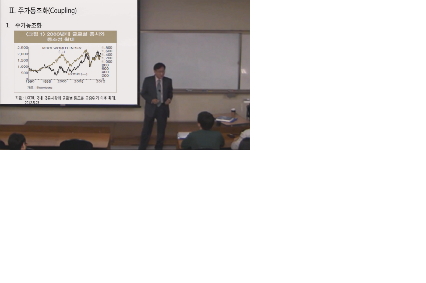본 연구는 2009년부터 2023년까지 유가증권시장 및 코스닥시장에 상장한 비(非)금융기업을 대상으로 대주주의 주식담보대출이 기업가치에 미치는 영향을 장기간에 걸쳐 분석하였다. 특히, 최...
http://chineseinput.net/에서 pinyin(병음)방식으로 중국어를 변환할 수 있습니다.
변환된 중국어를 복사하여 사용하시면 됩니다.
- 中文 을 입력하시려면 zhongwen을 입력하시고 space를누르시면됩니다.
- 北京 을 입력하시려면 beijing을 입력하시고 space를 누르시면 됩니다.
https://www.riss.kr/link?id=A109239236
- 저자
- 발행기관
- 학술지명
- 권호사항
-
발행연도
2024
-
작성언어
Korean
-
주제어
주식담보대출 ; 하방경직성 ; 기업가치 ; 외국인투자자 ; 지배구조 ; Share pledges ; Cost stickiness ; Firm value ; Foreign investors ; Corporate governance
-
KDC
327
-
등재정보
KCI등재
-
자료형태
학술저널
-
수록면
1-26(26쪽)
- 제공처
-
0
상세조회 -
0
다운로드
부가정보
국문 초록 (Abstract)
본 연구는 2009년부터 2023년까지 유가증권시장 및 코스닥시장에 상장한 비(非)금융기업을 대상으로 대주주의 주식담보대출이 기업가치에 미치는 영향을 장기간에 걸쳐 분석하였다. 특히, 최근 원가의 하방경직성이 기업의 대리인 문제를 야기하여 기업에 부정적인 영향을 미칠 수 있다는 주장을 고려하여 주식담보대출과 기업가치 간의 관계에 원가의 하방경직성이 미치는 역할을 추가적으로 확인하였다.
분석 결과, 대주주의 주식담보대출은 전반적으로는 기업가치에 긍정적인 영향을 미치는 것을 확인하였다. 이는 주식담보대출 여부를 고려한 더미변수와 상장주식 수 대비 담보주식수 비율을 이용한 분석에서도 동일하게 나타났다. 반면, 원가를 판매관리비와 총비용으로 측정한 후 하방경직성이 기업에 미치는 영향을 살펴본 결과, 주식담보대출의 효과를 고려한 경우에는 기업가치에 긍정적인 영향을 미치는 일관된 결과를 확인할 수 없었다. 특히, 원가의 하방경직성 정도에 따라 주식담보대출이 기업가치에 미치는 영향을 세부적으로 구분하여 살펴본 결과, 원가 하방경직성이 높을수록 주식담보대출이 기업에 미치는 긍정적인 영향이 유의적으로 감소하는 것으로 나타나 원가 하방경직성이 대리인 문제 등을 야기하여 기업에 부정적인 영향을 미친다는 주장과 일관된 결과를 확인할 수 있었다. 한편, 재벌 여부, 대주주 지분율 수준, 외국인투자자 지분율 수준, 그리고 기업의 성장률 등으로 표본을 구분한 결과에서도 재벌기업 또는 외국인투자자 지분율이 낮은 기업 등 대리인 문제가 발생할 가능성이 높은 기업들에서 앞의 결과가 뚜렷하게 나타나는 것을 확인할 수 있었다.
본 연구는 그동안 별개로 이루어졌던 주식담보대출 관련 연구와 원가의 하방경직성 연구를 통합적으로 고려하였으며 특히, 주식담보대출의 부정적인 효과가 주로 제시된 기존 연구와 달리 기업의 특성 및 상황에 따라 긍정적인 효과가 존재할 수도 있음을 실증적인 제시하였다는 점에서 그 의미가 있다. 종합적으로, 본 연구 결과를 통해 주식담보대출의 긍정적인 효과를 위해서는 필요시 원가의 하방경직성 등 대리인 문제를 발생시킬 가능성이 있는 기업활동에 대한 체계적인 관리가 필요하다는 시사점을 확인할 수 있다.
다국어 초록 (Multilingual Abstract)
This study analyzes the impact of share pledges on firm value over the period between 2009 and 2023 using non-financial Korean firms listed on the KSE and KOSDAQ stock markets from a long-term perspective. Considering the evidence on the negative effe...
This study analyzes the impact of share pledges on firm value over the period between 2009 and 2023 using non-financial Korean firms listed on the KSE and KOSDAQ stock markets from a long-term perspective. Considering the evidence on the negative effect of cost stickiness on firm value due to agency problems, we look further into the moderating effect of cost stickiness on the relation between share pledges and firm value.
Our findings confirm the previous suggestions that share pledges of controlling shareholders have an overall positive effect on firm value. We also find the same evidence in an analysis using the share pledge ratio as well as a share pledge dummy variable. However, our results could not lend credence to evidence of a positive association between cost stickiness and firm value after considering controlling shareholders’ share pledge effect, which is robust depending on whether cost stickiness is measured by SG&A or total costs.
In the meantime, taking into consideration the degree of firms’ cost stickiness, we show that the positive effect of share pledges on firm value decreases as the degree of cost stickiness increases. This result is in line with previous studies that suggest a negative effect from cost stickiness on a firm due to agency problems. We also perform the above tests by splitting firms into several groups based on being a Chaebol, the ownership ratio level, the level of foreign ownership, and sales growth rate. Our findings again support the results that the positive effects of share pledges on firm value decrease in firms that are more likely to have agency problems, such as Chaebols or firms with a small share of foreign investors.
The primary contribution of this study is that we perform studies on share pledges and cost stickiness jointly, although they have usually been conducted separately. Unlike previous studies that mainly document the negative effects of share pledges, we present empirical evidence on the positive effects of share pledges on firm value, which depend on the firms’ characteristics and circumstances.
Collectively, we postulate that for the positive effects of share pledges, it could be necessary to systematically manage firms’ activities that have the potential to cause agency problems (such as cost stickiness) and which include good corporate governance systems.
동일학술지(권/호) 다른 논문
-
IPO 기업의 저가발행과 주간사 수수료에 관한 연구 - IPO 이후 기업 인수 동기를 중심으로 -
- 한국FP학회
- 박경희(Kyung Hee Park)
- 2024
- KCI등재
-
내부통제와 감사품질이 기업의 투자효율성에 미치는 영향 - 중국 상장기업을 중심으로
- 한국FP학회
- 웨이셴롄(Xian-Lian Wei)
- 2024
- KCI등재
-
국내상장 미국 주식형 상장지수펀드(ETF)의 성과요인 분석: 투자자 관점에서의 고찰
- 한국FP학회
- 최수정(Sujung Choi)
- 2024
- KCI등재
-
자산과 부채 보유 현황에 따른 밀레니얼 세대의 경제적 특성 분석
- 한국FP학회
- 곽민주(Min Joo Gwak)
- 2024
- KCI등재





 DBpia
DBpia






